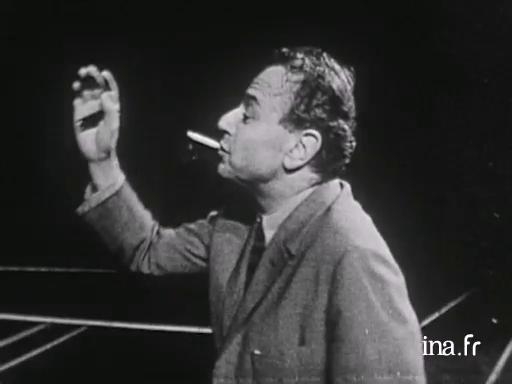Michel Cacoyannis stages Romeo and Juliet.

Information
Report on the rehearsals of Romeo and Juliet, staged by Michel Cacoyannis at the TNP in Paris. Conversation with the director and the actors and excerpts from the rehearsals.
- Europe > France > Ile-de-France > Paris
Context
Michael Cacoyannis was born in Cyprus in 1922. He studied law in London before venturing into an artistic career. He produced Greek radio programmes for the BBC and studied production and acting.
Passionate about tragic destinies, he became script writer, producer and director for his films, and a theatre producer. Returning to Greece in 1952, he gained success in the cinema withWindfall in Athens. He also directedStella(which introduced the actress Melina Mercouri), The Girl in Black, Electra(which received several prizes throughout the world, notably the Grand Prix du Jury in Cannes in 1962), Zorba the Greek(nominated three times for Oscars in 1964),Iphigenia(1977) and more recentlythe Cherry Orchard(1999.).
In theatre, his major productions werethe Trojan Women, at the National Popular Theatre in 1965 that the John Paul Sartre adaptation, Iphigenia(1967), Romeo and Juliet(1968),The Bacchantes(1977).




